Egypt: Safety and How to Deal With Street Hassle
Egypt is a popular tourist destination, although many travellers are concerned about safety and the situation regarding street hassle in the country.
If you are considering travelling to Egypt and have read or heard accounts from others who have visited before, it is likely that many of these reports include stories about pervasive street hassle, with people often mentioning feeling unsafe and vowing to “never return again.”
Other travellers, however, report facing little to no issues and having enjoyed some fantastic moments on their trip to Egypt.
So what is the truth? As always, the answer is a lot more nuanced.
Having spent two weeks travelling across Egypt, I’ll try to provide an honest assessment of the safety situation, explain what the much-reported street hassle entails, and offer tips on how to handle it.
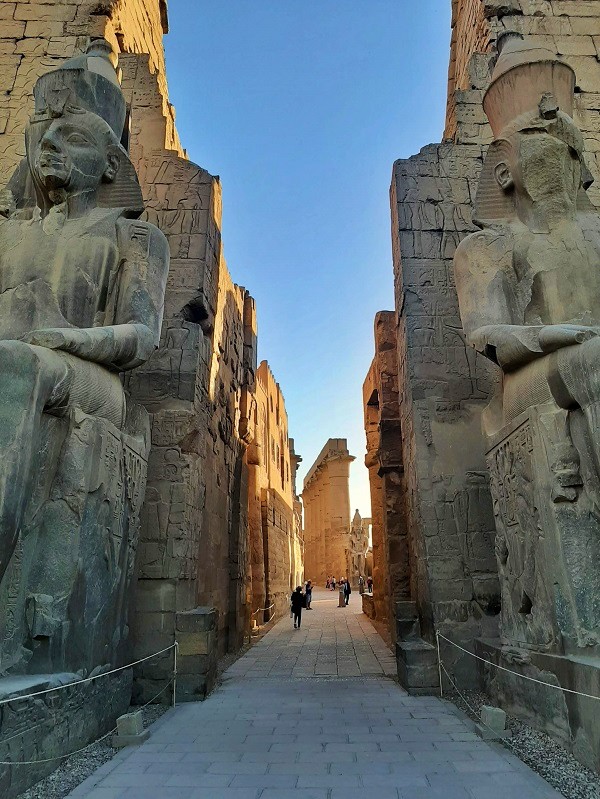
Is Egypt safe to visit?
Egypt is a safe country to visit, and many people choose to do so, with almost 15 million tourists visiting the country in 2023.
Of course, if Egypt would be inherently unsafe, the country wouldn’t have received such a massive number of foreign arrivals!
Although you shouldn’t shy away from visiting the wonderful country that is Egypt due to some horror stories on the internet, it’s important to be aware that there are still some security risks and things to consider.
Fortunately, if you are fully prepared for your upcoming travel to Egypt, these risks are absolutely minor in the grand scheme of things.
To better discuss the safety situation in Egypt and address these small security issues, it’s more helpful to divide this broad topic into several subcategories, such as terrorism, crime, and street hassle.
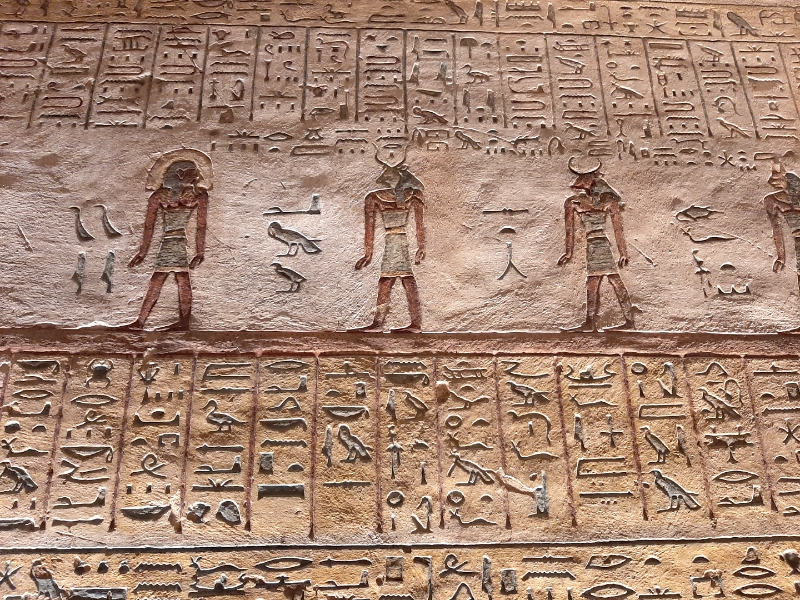
Terrorism in Egypt
In the last decade, Egypt has been hit by several terrorist attacks, so this is definitely something you should be aware of.
However, it’s important to realise that terrorism isn’t exclusively an Egyptian problem, as countries like the United Kingdom, France, or the United States have also been the target of terrorist attacks in the past.
It’s therefore a bit weird to avoid visiting Egypt out of fear of a terrorist attack when you have no qualms walking the streets of Paris!
Previous terrorist attacks in Egypt have not only targeted western tourists, but also the Coptic Christian minority in Egypt, army checkpoints, and even mosques.
If we focus solely on attacks targeting foreign tourists, the last major terrorist attacks in Egypt were a shooting in 2023 killing two Israeli tourists in Alexandria, a roadside bomb near Giza in 2018 which killed 3 Vietnamese tourists and their Egyptian tour guide, and a 2017 stabbing attack in the Red Sea resort of Hurghada, which killed 2 Germans and a Czech tourist.
In 2015, a plane carrying returning Russian tourists from Sharm-el-Sheikh to Saint Petersburg was blown out of the sky by a suspected bomb, killing all 224 people on board.
Yet these attacks pale in comparison to those targeting Coptic churches or even mosques (in 2017, 311 people were killed in an attack by Islamic State terrorists on a Sinai mosque alone).
It’s therefore always smart to be aware of the potential danger of a terrorist attack and to be on your guard for possible dangerous situations, even though the likelihood of becoming a victim of terrorism is extremely low.
Security in Egypt is generally high, with the Egyptian government and police putting significant effort into guarding tourist sights and other high-profile targets, which is unsurprising considering the importance of tourism to the country.
It’s therefore not uncommon to have to pass through an X-ray security scanner when entering a high-end hotel, museum, or station, and to see heavily armed police officers or soldiers guarding churches and tourist sights.
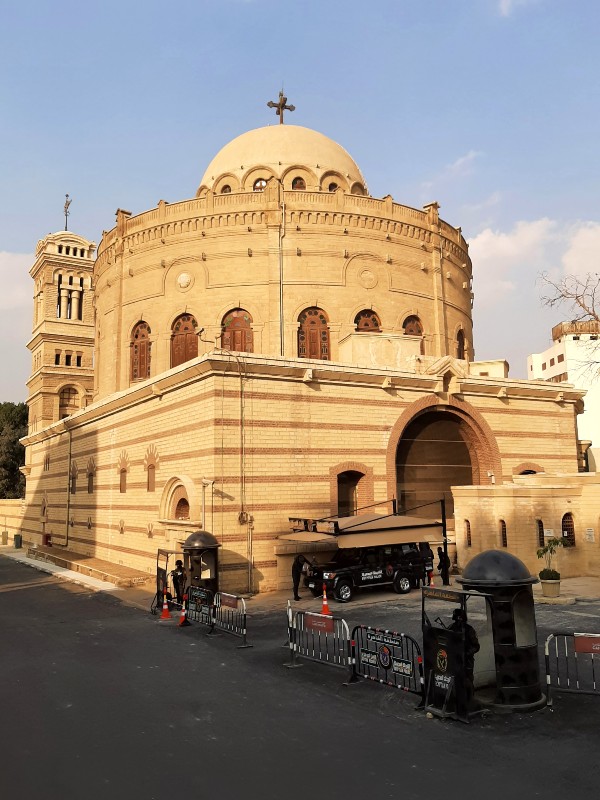
Crime in Egypt
Egypt is a country with a low crime rate, and you’re generally much safer walking the streets of Cairo, Alexandria, Luxor, or Aswan than in any major city in Western Europe or the US.
Random violence is almost unheard of, and street crimes such as pickpocketing, robberies, as well as theft, are uncommon.
Even though the crime rate in Egypt is low, it’s always good to take care about your safety when walking the streets or when visiting a major touristic sight.
Make sure your wallet and any other valuables you might carry are safely stored deep in your pockets or rucksack, and keep an eye on your surroundings at all times, especially in crowded places.
At night, it’s best not to wander along empty streets alone, especially if they’re far away from the hustle and bustle of the city centre, such as those in Giza close to the pyramids.
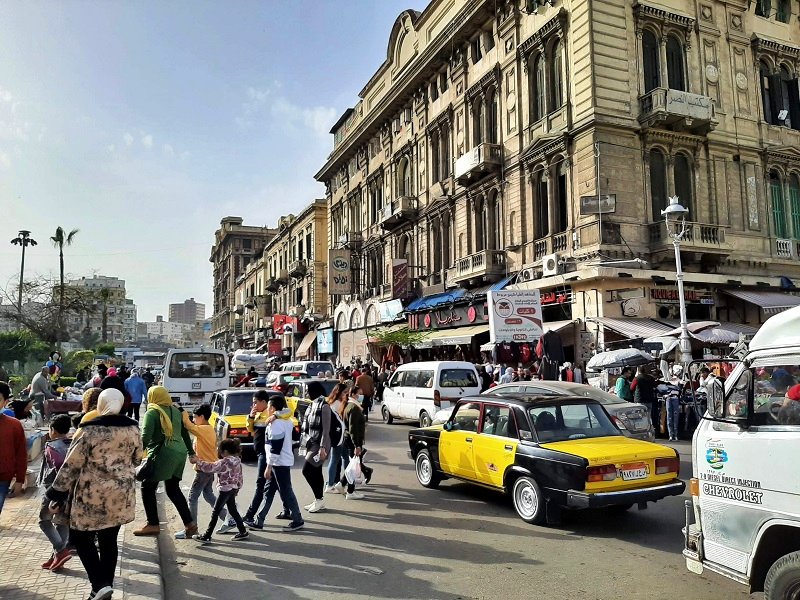
Street hassle in Egypt
Like it or not, street hassle is a fact of life in Egypt, and although most of it is innocent, it can definitely be annoying.
Street harassment or hassle essentially means being approached by random people on the street for various reasons.
Many of these individuals are street sellers or shop owners who either attempt to sell something to you or persuade you to follow them to their nearby store.
Others are tricksters or con-artists who will try to get some money out of you.
One way they attempt to do this is by offering you a “free present” and then either guilt-tripping you into giving some money or pretending to be highly offended when you give it back to them.
Another category of people are the wannabe guides who hang out on the street in front of tourist sights, many of whom may not be overly qualified and simply obtain their information from Wikipedia.
Street hassle is most common in Cairo and Luxor, with the area around the Pyramids of Giza being the worst of all, followed by the Khan el-Khalili bazaar and downtown Luxor.
Of course, you should also prepare to be approached by countless of taxi drivers and touts when you enter the arrivals area of Cairo Airport.
Although many Western tourists feel unsafe because of the street hassle, it doesn’t necessarily reflect on safety, as for most, it’s just an aggressive way of selling goods or services that’s fairly common not only in Egypt but also in many other countries across the world.
With a bit of preparation and local knowledge, it’s also relatively easy to deal with street hassle and keep it at fairly low levels.

Tips on how to deal with street hassle
One easy way to deal with street hassle is to simply ignore anyone attempting to approach or talk to you on the street.
The best way to do so is by saying “la shukran” (Arabic for “no thanks”) in response to anyone approaching you while continuing the activity you were doing.
If you were just casually strolling around in a bazaar, then keep doing so at the same pace, while saying “la shukran” once or twice if an annoying street seller continues to talk to you.
At no point should you stop and engage in a conversation beyond those words, as that’s exactly what these people are interested in.
Another way to avoid street hassle is by hiring an Egyptian guide – which, in my opinion, is highly recommended anyway when visiting ancient Egyptian temples if you want to understand the complicated but highly interesting symbolism and history behind them.
With a local guide at your side, street hassle is almost non-existent, and in the odd case someone approaches you, your guide will deal with them instantly and make them go away.
Of course, it’s best to hire a guide in advance through a reliable travel agency or local tour outfit, or to use the official guide services of museums and other sights.
Although genuine hospitality by strangers does exist in Egypt, the chances are zero that you will encounter it at any tourist hotspots, so ignore all people offering you something for free in places like Giza, downtown Cairo, or Luxor.
Don’t automatically assume that what people tell you on the street is true (such as a certain sight being closed or you taking the wrong way to walk somewhere) as they might want to guide you in a certain direction for a reason.
When you are interested in some services or want to buy something, make sure to haggle hard (prices are always inflated by wide margins on the street!).
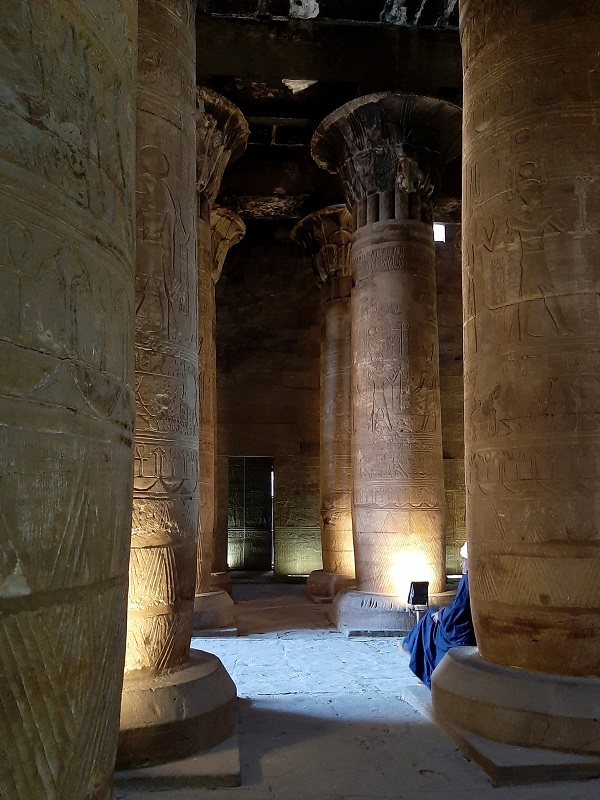
Hassle in hotels
Hassle doesn’t only exist on the streets – you will also encounter it at some local hotels, hostels, and guesthouses where the owner and other employees might constantly harass you in an attempt to sell you train or bus tickets, arrange a taxi or guided tour for you, or promote other tourist activities.
Their goal is of course simple, as they either try to earn a commission this way or sell something for highly inflated prices.
Although I’m usually a big fan of staying in smaller, family-run hotels when travelling in Europe, Egypt is one of the countries where you are better off sticking to mid-range or luxury chain hotels as you can rest assured that your stay will be without any sales pitches.

Baksheesh
Another situation to be aware of when traveling across Egypt is the attempts to extort some ‘baksheesh’ (basically a bribe or a tip) from you.
When a random stranger approaches you on the street just to show you the directions to a certain sight, and you might end up following him, chances are that he will demand some baksheesh for the service.
It’s up to you whether you want to give some money or not: In case someone really went out of the way to help you out it’s recommended, but if someone was annoying rather than helpful, it’s perfectly fine to ignore any request for baksheesh.
In case you pay some baksheesh, just 1 or 2 euros’ worth of Egyptian pounds is sufficient – ignore requests for more.
Baksheesh doesn’t have to be a negative thing: In some situations, a bit of baksheesh might also open doors that would have remained closed otherwise.
For example, when I walked across the wonderful Qalawun Complex in the Islamic old town of Cairo, I was approached by a guard who asked if I wanted to have a look at the rooftop, which is normally off-limits for visitors.
After agreeing on a price (feel free to haggle!), he covertly opened a little door when nobody else was looking and gestured for me to follow him up some small stairs.
From the upper floors and the rooftop I had some magnificent views over the interior of the mosque, as well as over the rooftops of Cairo.
In such situations, it’s highly advisable to agree on a price beforehand, as otherwise, you might end up in a situation where the person asking for baksheesh might make a fuss if you’re giving too little money (in his eyes) in order to extract even more from you, even though a couple of dollars’ worth of Egyptian pounds might be sufficient.

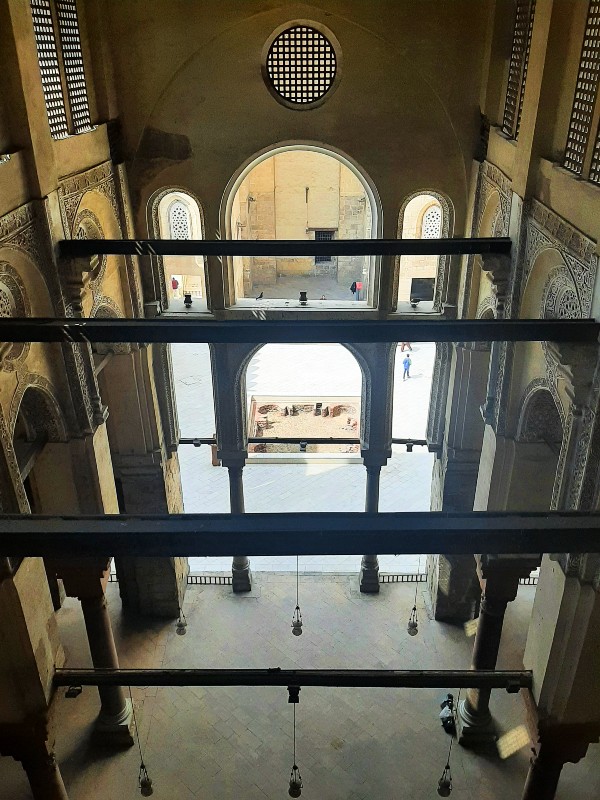

Female safety in Egypt
A less common form of street hassle in Egypt – but certainly something to be aware of if you are a woman as it does exist – is men approaching western women with lewd remarks, proposals, or even outright sexual harassment.
It’s important to remember that Egypt is a conservative country with strict cultural norms, and that men – especially those from the lower classes – have limited interaction with women who aren’t part of their immediate family.
Unfortunately, this is the reason why some might try to take their chances with female tourists and approach them in a way they would never even dare to attempt with Egyptian women.
It’s therefore best to prepare as a female traveller, especially when you are traveling solo, as a trip to Egypt will simply be a bit more challenging than a city break in New York or Rome in terms of safety.
First of all, it’s best to dress conservatively, which means wearing long pants, covering your shoulders, and avoiding clothes that accentuate the shape of your body.
A headscarf isn’t necessary, but I would recommend taking a loose-fitting scarf that you can use to cover your hair, as you would need it anyway when visiting a mosque.
When having a conversation with Egyptian men, it’s best not to mention that you are single in case you are, and the old trick of wearing a fake wedding ring and pointing at it while referring to your supposed husband still works well.
For anyone approaching you on the street, start by saying “la shukran,” as that’s the best way to deal with general unwanted street hassle.
In all cases, try to avoid eye contact and having a conversation, and simply continue walking or whatever else you were doing.
In case of lewd remarks and proposals or outright sexual harassment, shout the phrase “aeeb aalyk” (shame on you).
It’s best to avoid empty streets – especially at night – but at the same time, overcrowded places should also be avoided as you have the potential danger of being groped.
In the Cairo metro, there are ladies-only cars which you should definitely take as a solo female traveller.
Overcrowded local buses are best to be avoided, but with the cheap taxi fares and the availability of ride-sharing services like Uber, that shouldn’t be much of a problem.
As a male traveller, I do however highly recommend reading blogs written by female travellers on the topic of safety, as they will undoubtedly provide a much better perspective on what it’s like to travel across Egypt as a (solo) woman.

Road and rail safety
Road safety in Egypt is poor, so it’s important to be cautious both when driving and walking around.
Due to the chaotic traffic in cities, it’s best not to drive yourself in Egypt, and there is anyway no need to rent a car as a tourist when visiting the country.
Keep an eye on your safety as a pedestrian in Egypt, as there may be no pavements along the road and only few pedestrian crossings with traffic lights.
Although there have been some deadly train and plane accidents in Egypt, I wouldn’t hesitate to use these modes of transport.
In fact, I thoroughly enjoyed my travels on Egypt’s railway network, whether it was my trip on the amazing Cairo-Aswan night train, an old Egyptian daytime train from Luxor to Cairo, or the modern Cairo-Alexandria train service.


More impressions of Egypt
Although the topic of safety is important to discuss, it’s essential to remember that Egypt is a beautiful country with many amazing sights to see.
On a positive note, I highly recommend reading my article about my travel impressions of Egypt, and checking out my full Egypt trip report, where I detail everything I did and saw on my grand tour across the country.




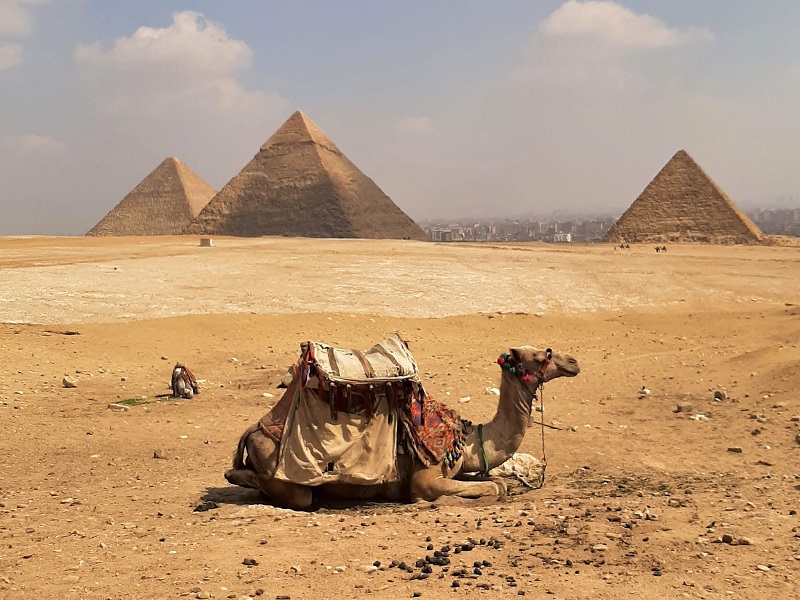
Conclusion
Egypt, visited by 15 million tourists each year, is a safe country to travel to, although there are certain safety aspects you should be aware of.
Although the crime rate in Egypt is low, the country has been the target of terrorist attacks in the past.
However, the chances of falling victim to terrorism are extremely low, and the Egyptian authorities go to great lengths to ensure the safety of foreign tourists.
Sadly, street hassle is a fact of life in Egypt, and although it can be annoying, it is fortunately mostly innocent and can be easily shrugged off by learning a few words of Arabic and doing a bit of preparation.
Street hassle in Egypt can be a bigger issue for solo female travellers, although there are steps you can take to prevent it or to fend off unwanted attention.
However, there is no need to become paranoid about your safety while visiting Egypt, as above all it’s a beautiful country with friendly people.
Trip report index
This article is part of the ‘Walk Like an Egyptian: A Grand Tour of Egypt‘ trip report, which consists of the following chapters:
1. Red-Eye Ramblings of a Late Night Flight to Cairo
2. A Visit to the Pyramids of Giza by Camel
3. Review: Sofitel Nile El Gezirah, Zamalek, Cairo
4. Exploring the Medieval Old Town and Islamic History of Cairo
5. Visiting the Museum of Egyptian Antiquities in Cairo
6. Mar Girgis: The Churches of Christian Old Cairo
7. Review: Ernst Watania Sleeping Train Cairo to Aswan
8. The Ancient Quarry of Aswan and the Unfinished Obelisk
9. A Boat Ride From Aswan to the Temple of Isis at Philae
10. A Visit to the Aswan High Dam and Lake Nasser
11. A Visit to the Nubian Village on Aswan’s Elephantine Island
12. Aswan Guide: A Visit to Egypt’s Most Stunningly Located City
13. A Half Day Trip From Aswan to Amazing Abu Simbel
14. Nile River Cruise Guide: All Info for Your Egypt Boat Trip
15. Review: M/S Princess Sarah Nile River Cruise Ship
16. Nile Cruise: Sailing From Aswan to Kom Ombo
17. A Visit to the Ancient Crocodile Temple of Kom Ombo
18. A Visit to the Temple of Horus at Edfu
19. Nile Cruise: Sailing From Edfu to Luxor
20. Luxor, Egypt: Visiting the Sights of Ancient Thebes
21. A Visit to Luxor’s Giant Temple Complex of Karnak
22. Visitor Guide to Wonderful Luxor Temple
23. Valley of the Kings: A Visit to Luxor’s Ancient Necropolis
24. The Temple of Hatshepsut: A Visit to a Unique Mortuary Temple
25. Review: Sofitel Winter Palace Hotel, Luxor, Egypt
26. Review: Daytime Train Luxor to Cairo, Egypt
27. Review: Steigenberger Hotel El Tahrir, Cairo
28. A Visit to the Pyramid of Djoser and the Saqqara Necropolis
29. A Visit to the Dahshur Pyramid Complex
30. Memphis: Exploring the Old Capital of Ancient Egypt
31. From Cairo to Alexandria by Train: My Travel Experience
32. Review: Paradise Inn Le Metropole Hotel, Alexandria, Egypt
33. Alexandria: A Visit to Egypt’s Historic Mediterranean Port City
34. Egypt: Impressions and Reflections After My Two Week Trip
35. Epilogue: Safety and How to Deal With Street Hassle in Egypt (current chapter)

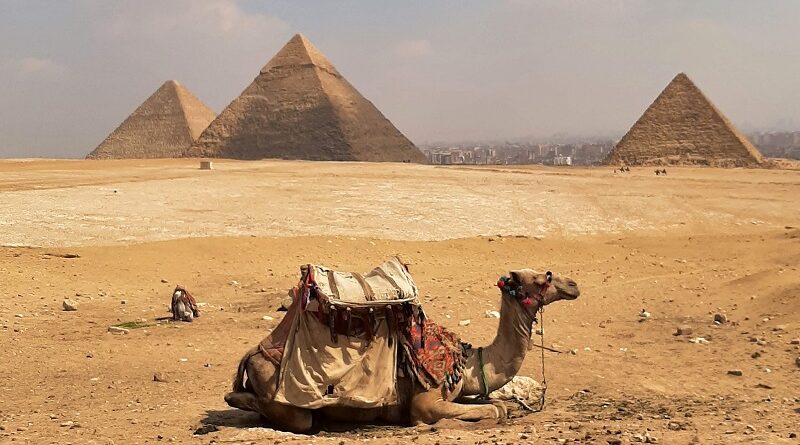
I enjoyed reading your articles around Egypt.looking forward to read some more about different tours of you.
What is Mr.Koen’s fb acct or any contact details,pls.? Im now a fan of him & his blogs. Any fan page of him to ask some few if i have? Thank you!
Having just returned from Cairo I can confirm the street hassle in Cairo & especially near the pyramids. The hassle was so bad I had to change hotel from the pyramids area to Central Cairo. I have been travelling since 2005 to mostly European cities. Also to USA. I have visited approximately 80+ cities & towns. This was my first trip to Egypt. And my LAST ! Without exaggerating I was approached once at least every 15 minutes by a taxiist, someone selling something, someone offering to take a picture, someone pretending to be a friend, someone asking me where I came from, someone trying to lure me into their store. I could go on…. This constant hassle absolutely ruined the trip. That’s without mentioning the taxi SCAMS getting back to the airport. I accept that Egypt has FAR less crime than European or American cities. But that’s the only plus point I’m giving it. The pyramids & Sphinx were nice. But it was a trip to remember AND FORGET for all the wrong reasons. I was warned by a friend before I went. I truly thought he was exaggerating. He wasn’t ! I wore jeans & t shirt so hardly looked ‘rich’. The poverty in Cairo, especially near the pyramids REALLY surprised me. And I guess this is their way of life -forcing their purchase on you. But it absolutely has put my Cairo trip firmly on the bottom of my travel league of destinations.